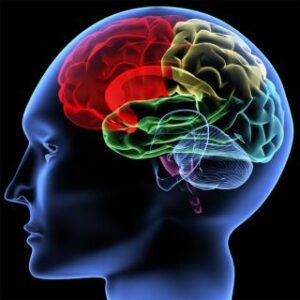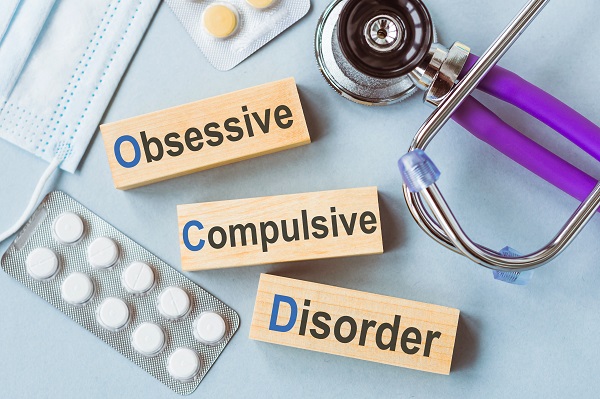Do you have obsessive thoughts that you can’t get out of your head? Are you constantly checking things, to the point where it’s interfering with your daily life? If so, you may be suffering from extreme OCD. This condition is characterized by severe obsessions and compulsions that can make everyday activities very difficult. In this blog post, we will discuss the signs, causes, and treatment of extreme OCD.
Contents
What Is Extreme OCD?

Excessive Obsessive-Compulsive Disorder (OCD) is a disorder characterized by unreasonable thoughts, fears, and worries that lead to compulsions and rituals. People with extreme OCD fear their obsessions will cause harm or are intolerable. These obsessions often focus on health, personal hygiene, sex, aggression, cleaning, or the need for orderliness.
The origin of extreme OCD is unknown, but it is believed to be linked to genetics and brain chemistry. Outbursts of extreme OCD can happen suddenly or gradually build over time. Sometimes, they can be triggered by a stressful event or situation. Maybe you’ve recently moved, changed jobs, gotten married, or had a child.
Signs and Symptoms of Extreme OCD
People with extreme OCD tend to have the same characteristics as those with milder forms of the disorder.
Intrusive Thoughts and Worries
One of the hallmarks of extreme OCD is having intrusive thoughts and worries that seem to come from nowhere. These thoughts can be very disturbing and can cause fear, anxiety, and guilt. One example could be a fear of contamination, which can manifest as a fear of germs or dirt.
Compulsive Behaviors
People with this OCD often feel the need to perform certain rituals or routines in an attempt to alleviate their anxiety. Common compulsive behaviors include checking locks multiple times, excessive handwashing, counting objects or steps taken throughout the day, cleaning compulsively, and repeating seemingly meaningless words or phrases.
Avoidance
Extreme cases of OCD may also lead to avoidance behaviors such as not leaving the house due to fear of germs, avoiding certain people or situations due to distressful feelings associated with them, or skipping work due to fear of making a mistake.
Constant Anxiety
People with extreme OCD may have difficulty maintaining relationships and experience feelings of dread or despair. They may be constantly anxious and tense, even in seemingly safe situations. Also, there may be difficulty completing everyday tasks because of intrusive thoughts and worries.
Causes of Extreme OCD

The exact cause of extreme OCD is not known, but research suggests that a combination of genetic and environmental factors may contribute to its development. The disorder has been linked to imbalances in certain brain chemicals, such as serotonin and dopamine.
Some of the other factors are:
Genetics
One of the possible causes of extreme OCD is genetics. If you have a family member who has the disorder, there’s an increased chance you may develop it as well. Sometimes, a traumatic experience or event can trigger the disorder in predisposed individuals.
Brain Chemistry
Imbalances in certain brain chemicals, such as serotonin and dopamine, can contribute to the development of this. Neurotransmitters are responsible for transmitting messages between different parts of the brain, and when these messages are disrupted, it can lead to OCD symptoms. This also explains why certain medications, such as antidepressants and anti-anxiety drugs, can be used to treat the disorder.
Stressful Life Events
Extreme OCD may also be triggered by a stressful life event. This could include a death in the family or any other traumatic experience. These events can cause extreme anxiety and fear, which can lead to obsessive thoughts and compulsive behaviors. These stressful life events can also trigger existing OCD symptoms.
Some stressful life events are :
- Death of a family member or friend
- Divorce or separation from a partner
- A major move to a different city
- Starting college or changing jobs
- Traumatic experiences, such as abuse or violence
Is Extreme OCD Different From Normal OCD?
As the name implies, extreme OCD is more severe than the typical obsessive-compulsive disorder (OCD). It often involves more intense obsessions, such as violent thoughts or impulses that can’t be controlled. While normal OCD may feel like a nuisance that gets in the way of daily life, this OCD can become debilitating and even cause significant distress.
Another point of differentiation between extreme OCD and typical OCD is the amount of effort required to keep obsessions and compulsions in check. With normal OCD, individuals may be able to manage their symptoms with some degree of success without professional help. However, this OCD typically requires more intensive intervention, such as psychotherapy or medication.
Sometimes, extreme OCD may be accompanied by other mental health issues, such as anxiety or depression. This can add to the complexity of treatment and make it more difficult to manage symptoms.
Treatment of Extreme OCD

Although there is no cure for extreme OCD, treatment options are available to help manage its symptoms and reduce the distress associated with them. Treatment may include therapy, medications, or a combination of both.
Talk Therapy
Cognitive Behavioral Therapy (CBT) is one of the most successful types of therapy for treating extreme OCD. It focuses on changing negative thought patterns that lead to obsessive thoughts and compulsive behaviors. Through cognitive restructuring and relaxation techniques, therapists help patients recognize their distorted thinking and learn how to replace it with more positive thoughts and beliefs about themselves. This type of therapy can be done in individual sessions or a group setting.
Medication
Certain medications, such as antidepressants and anti-anxiety drugs, may also be used to treat extreme OCD. These medications help reduce anxiety and relieve some of the obsessive thoughts that accompany the disorder. It’s important to remember, however, that medication alone is not usually enough to treat extreme OCD; it should always be combined with psychotherapy for the best results. Some of the medications are:
- Selective serotonin reuptake inhibitors (SSRIs)
- Tricyclic antidepressants
- Monoamine oxidase inhibitors (MAOIs)
- Anxiolytics
In severe cases of this OCD, a combination of psychotherapy and medication may be recommended. This will help reduce the symptoms of the disorder and improve overall functioning. A mental health professional can provide specific guidance on which treatment plan works best for each case.
Alternative Treatments
In addition to traditional therapies, several alternative treatments may help those with extreme OCD manage their symptoms. Examples include:
Mindfulness Meditation
One of the more popular alternative treatments is mindfulness meditation. This involves focusing on the present moment and letting go of any intrusive thoughts or worries. Practicing this type of meditation can help individuals gain control over their obsessive thoughts and behaviors, as well as reduce stress levels. Several studies have shown that practicing mindfulness meditation can help reduce OCD symptoms.
Yoga and Exercise
Exercising regularly can also help to reduce symptoms of extreme OCD. Yoga, in particular, is a great way to relieve stress and improve overall well-being. It combines physical poses with mindful breathing to create a calming effect that helps ease anxiety and obsessive thoughts. Regular exercise has also been found to increase levels of serotonin in the brain, which helps regulate mood and behavior.
Nutrition Therapy
A healthy diet is essential for managing extreme OCD symptoms. Eating nutrient-rich foods such as fruits, vegetables, whole grains, and lean proteins can provide the body with essential vitamins and minerals needed for optimal functioning. Limiting processed foods or sugary snacks can also help reduce anxiety levels. This is because sugar can sometimes cause mood swings, which can make OCD symptoms worse. Eating a balanced diet is an important part of managing extreme OCD.
Acupuncture
Acupuncture is another alternative treatment that may be beneficial for extreme OCD sufferers. This ancient Chinese practice involves inserting thin needles into specific points on the body to stimulate energy flow and reduce stress. Studies have found that acupuncture can help reduce anxiety levels and improve overall well-being in individuals with OCD.
AcuDetox
AcuDetox is another alternative treatment that uses thin needles to stimulate certain points in the body. Unlike acupuncture, AcuDetox focuses more on helping individuals to release negative emotions and thought patterns. This can be beneficial for extreme OCD sufferers as it helps them let go of any obsessive thoughts or behaviors they may have been struggling with.
No matter what type of treatment is chosen to manage this OCD, it’s important to remember that recovery takes time and patience. It also requires ongoing support from friends and family members for individuals to make lasting changes.
Conclusion
Extreme OCD is a serious condition that can be difficult to treat. However, with support and the right treatment, people can manage their symptoms and lead fulfilling lives. It is important to recognize the signs of extreme OCD to get help as soon as possible. Cognitive Behavioral Therapy (CBT) is one of the most effective treatments for extreme OCD and should be considered if you or someone you know may have this disorder. If you are unsure whether you or someone else has OCD, it is best to consult with a mental health professional who can help make an accurate diagnosis and provide appropriate treatment options.
It’s also important to remember that no matter how severe your symptoms may seem, recovery from extreme OCD is possible with proper help from healthcare professionals.
For more information and guidance, please contact OCDMantra. OCD is a mental health disorder characterized by obsessions and compulsions. If you have any queries regarding OCD treatment, ERP therapy experienced therapists at OCDMantra can help: Book a trial OD therapy session.


